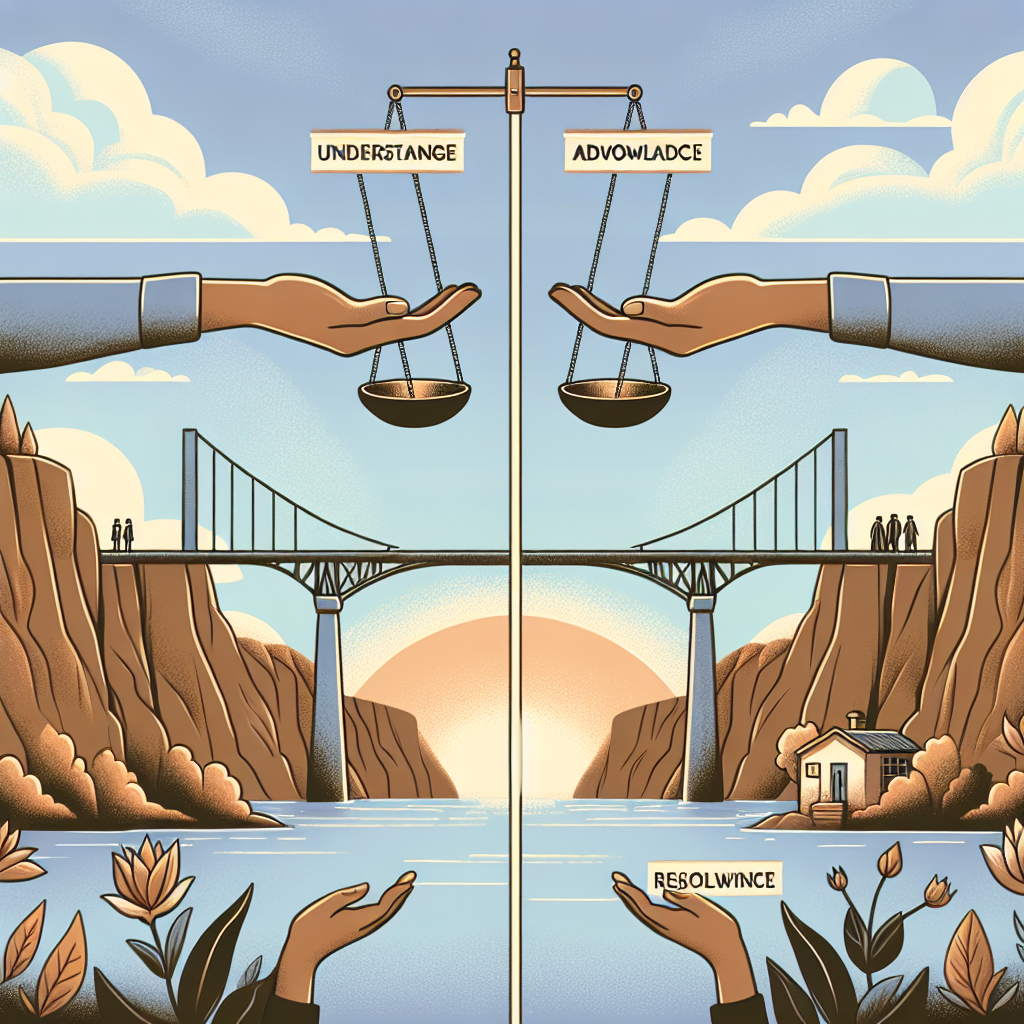Dealing with Power Imbalances

Empowering Strategies for Power Imbalances: SEO Tips
Understanding Power Imbalances
A power imbalance exists when one person or group holds more power or control over another person or group. This can be seen in various relationships and social structures, such as in the workplace, intimate relationships, and society at large. Power imbalances can take many forms, including economic, social, cultural, and political power. It can also manifest in different ways, such as through the use of authority, domination, or manipulation.
Impact of Power Imbalances
The effects of power imbalances can be detrimental to individuals, relationships, and society as a whole. When one person or group has more power than another, it can lead to unequal opportunities, unfair treatment, and exploitation. This can also result in feelings of inferiority, low self-esteem, and disempowerment for the less powerful individual or group. In the workplace, power imbalances can lead to toxic work environments, wage disparities, and unequal career advancement opportunities. In intimate relationships, power imbalances can contribute to unhealthy dynamics such as emotional abuse and controlling behaviors.
Recognizing Power Imbalances in Relationships
It is important to be aware of power imbalances in relationships, as they can often go unnoticed or be normalized. Some signs of power imbalances in personal relationships include one person making all the decisions, controlling the other’s behavior or actions, and dismissing or devaluing the other person’s feelings and needs. In professional relationships, power imbalances can be seen through unequal distribution of tasks and responsibilities, unequal pay, and unequal opportunities for growth and advancement.
Addressing Power Imbalances in the Workplace
To address power imbalances in the workplace, it is important for organizations to have clear policies and procedures in place to prevent discrimination and harassment. This includes providing training on diversity and inclusion, as well as establishing a safe and confidential way for employees to report any instances of power imbalances. Employers should also strive for equal pay and equal opportunities for employees at all levels. It is also important for individuals to advocate for themselves and speak up if they feel they are being treated unfairly due to a power imbalance.
Navigating Power Imbalances in Intimate Relationships
In intimate relationships, communication and boundaries are key to navigating power imbalances. Both partners should have equal say in decisions and be respectful of each other’s boundaries. It is also important for individuals in a relationship to have their own independence and not be completely reliant on their partner. If a power imbalance is present, it is important for both partners to address it openly and work towards finding a balance and equal distribution of power.
Empowering Strategies for Individuals in Power Imbalances
For individuals who are in a position of less power, there are empowering strategies that can help them assert themselves and navigate the power imbalance. This includes setting boundaries, expressing their needs and wants, and standing up for themselves in a respectful manner. It is also important for individuals to seek support from friends, family, or professional resources if they feel overwhelmed or unable to address the power imbalance on their own.
Cultivating Equal Power Dynamics in Friendships
Friendships should be based on equality and mutual respect. If a power imbalance exists in a friendship, it can be helpful for both friends to openly communicate about it and work towards finding a balance. This can involve discussing each other’s needs and boundaries, and making sure that both friends have equal opportunities to express themselves and make decisions. Friendships should also be a safe space for honest and open communication without fear of judgment or manipulation.
Challenging Power Imbalances in Society
To address power imbalances in society, it is important for individuals to challenge these systems and advocate for change. This can involve speaking out against discrimination and inequality, supporting marginalized communities, and using our privilege and power to uplift and empower those who are less privileged. It is also important to educate ourselves and others about systemic power imbalances and work towards creating a more equitable society for all.
Overcoming Internalized Power Imbalances
Internalized power imbalances refer to the ways in which we may internalize and perpetuate power imbalances in our thoughts and behaviors. This can be seen in our biases, prejudices, and beliefs about ourselves and others. To overcome internalized power imbalances, it is important to continuously reflect on our thoughts and beliefs, challenge them, and actively work towards unlearning harmful beliefs and behaviors. It is also important to listen to and learn from marginalized communities and support their voices and experiences.
Creating Lasting Change: Advocating Against Power Imbalances
In order to create lasting change and reduce power imbalances, it is important for individuals to advocate against them in their personal and professional lives. This can involve supporting organizations and policies that promote equality, speaking out against discrimination and inequality, and actively working towards creating more inclusive and equitable environments. It is also important to continuously educate ourselves and others about power imbalances and take action to dismantle them.



